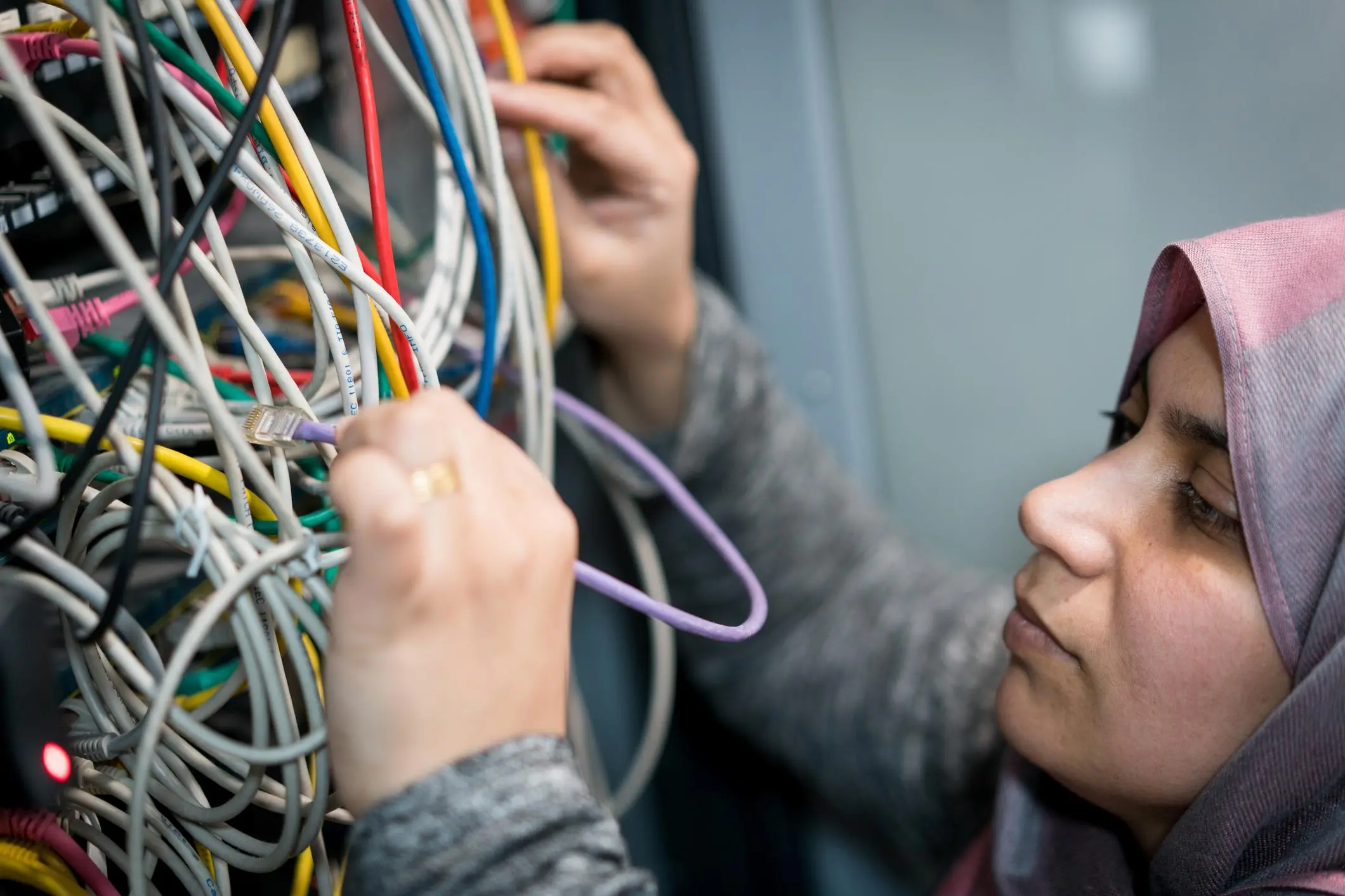PHOTO
It is believed that new age technologies will make a lot of jobs redundant and create joblessness. However, technology experts and industry executives believe that's not true when it comes to Artificial Intelligence (AI).
They believe that Artificial Intelligence will create more alternative jobs especially in the data collection and management side such as data scientists, AI software developers, data and AI solution sales executives, data detectives, AI business development managers, machine-learning analysts, AI-assisted healthcare technicians among others. In addition, people will need to upgrade their skills and knowledge in line with new age technologies which will create jobs in the education sector.
"AI is similar to Internet which transformed the way people work these days. AI might let get few jobs but will create much more new jobs. People are now-a-days multi-learners and multi-discipliners rather than being specific to one subject. Things are moving in a fast way, so they're putting pressure on universities too to educate students that are ready to take on new age technologies such as AI," said Marwan Abdulaziz Janahi, managing director, Dubai Science Park.
James Petter, vice-president for EMEA, Pure Storage, said the primary value of AI is around automation and it helps reduce the cost of businesses. "In my opinion, the 'robots are going to automate us out of jobs' story is over-played. In fact, according to a survey conducted by MIT Technology Review and commissioned by Pure Storage, 85 per cent of respondents in Middle East and Africa believe that there will always be a need for humans to interpret the data," Petter said. While AI will automate several routine tasks, he noted that there will always be a need for humans to interpret the data. This creates a whole new demand for what the industry now calls 'data scientists'. In addition, AI will free up workers to think more creatively about the business challenges they face and reduce rote tasks so workers can turn their focus to innovation and become more creative on strategic projects, Petter added.
Sunil Suresh, chief marketing and strategy officer, Capillary Technologies, said Artificial Intelligence will eliminate tasks but not jobs.
"AI will definitely create more jobs and a whole set of opportunities for the new generations. AI would require fresh skills, for sure, and people will have to upgrade themselves accordingly," he said. Citing an example, he said retailers will have more and more data about the choices of individuals customers, so, they will be required to have more people on the ground to interpret that data and assist their customers in selecting the right products. Quoting a PwC report, Allan Leinwand, chief technology officer, ServiceNow, said AI is expected to account for approximately 13.6 per cent of UAE's GDP by 2030. "The truth is that some jobs will be lost, but many more will be created. It is important to understand that fundamentally; AI is not strong at creative, interpersonal or physical work. It will be used for 'decision support, not decision-making," Leinwand said, adding that AI might result in loss of certain jobs, it is more likely that the amount of work each worker will need to complete will be reduced and simplified rather than eliminated.
Harish Chib, vice president, Middle East & Africa, Sophos, says AI will have a massive impact on human being's ability to stop cybercriminal activity because there is no way that human analysts can stay on top of the problem using traditional anti-virus techniques
From job creation point of view, according to Chib, AI will complement the overstretched teams that take care of cybersecurity. "There is anyway a massive shortage of trained cybersecurity professionals globally and AI like deep learning into security solutions will share the load of overstressed security professionals by automating threat detection and removal."
Copyright © 2018 Khaleej Times. All Rights Reserved. Provided by SyndiGate Media Inc. (Syndigate.info).





















